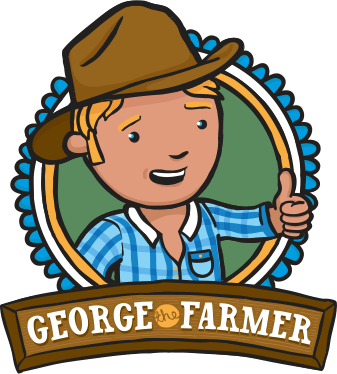The importance of farmers globally cannot be overstated — they provide the food that sustains us three times a day. Despite this, the recent National Farmer Wellbeing report found that over 75% of surveyed farmers felt undervalued by the public. This lack of recognition — whether real or perceived — is a significant concern, given that 90% of the food we eat in Australia is produced domestically.

One major reason for this disconnect is that consumers have become increasingly detached from the source of their food. While there is a growing desire and more discussion around the production of ethical and sustainable food production, many people still lack knowledge of how food is produced — and the effort, skill and luck from the weather gods that is required to supply clean, green produce.
An Australian Council of Educational Research survey released in 2012 highlighted that 45% of Australian Year 6 children didn’t identify everyday lunchbox items such as a banana, a piece of cheese or bread from their sandwich as coming from a farm. In the United States, a 2019 survey revealed that 16 million adults believe chocolate milk comes from brown cows.
By reconnecting consumers with the people and processes behind their food, we can strengthen communities, increase health and well-being, and develop a deeper appreciation for our farmers and natural resources.
Globally, the agricultural sector calls for greater support to educate children about the source of their food and fibre. This is critical, as children eventually become consumers themselves. By educating young people, we can dispel myths and falsehoods about agriculture, increase support for the sector, and make farmers feel more valued in their work.
At George the Farmer, we’re providing an integral role in raising the awareness and appreciation of those involved in the agricultural sector. Through picture storybooks, paddock-to-plate videos and music, the George the Farmer platform engages and educates children in a fun way.
In addition, our free, curriculum-aligned educational resources focusing on STEAM subjects for reception - year 4 students, are designed to provide children with an interactive way to learn about food and fibre in the classroom.
To date, approximately 100,000 students across Australia have benefited from these resources, covering topics such as apples, chickpeas, wheat, wool, and dairy.
Let’s cultivate a brighter future for our farmers and food systems by sowing the seeds of knowledge in our children. By instilling a deeper appreciation for the hard work and dedication required to produce the clean, green food we’re fortunate to consume, we can nourish the agricultural industry and ensure a sustainable supply of clean, safe, and healthy food for generations to come.
National Farmer Wellbeing Report commissioned by dairy co-operative Norco in partnership with the National Farmers' Federation (NFF).
